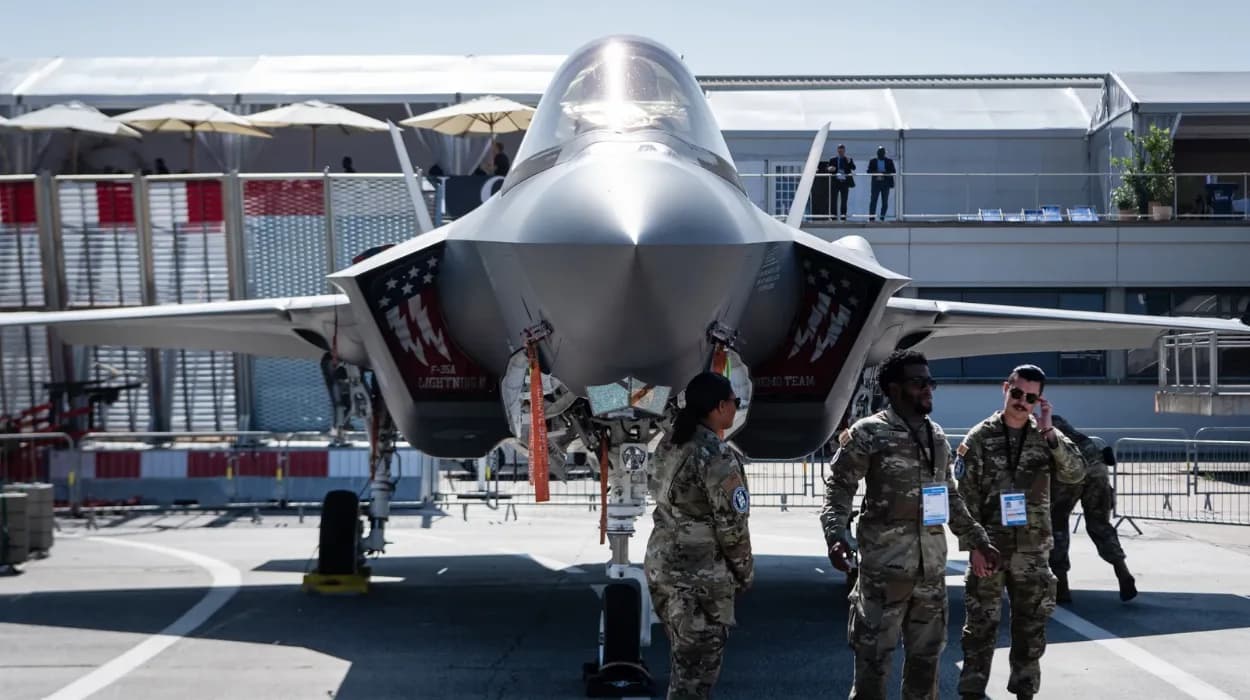President Recep Tayyip Erdoğan of Türkiye confirmed that the
Turkish government is actively pursuing the delivery of F-35 fighter jets from
the United States after having paid approximately $1.4 billion for the
aircraft. Erdoğan emphasized this point in a statement following his meeting
with U.S. President Donald Trump, underscoring that while Türkiye was removed
from the F-35 program due to its purchase of the Russian S-400 system, it seeks
resolution on the jet deliveries.
Türkiye Pursuing F-35 Fighter Jet Delivery
As reported by İbrahim Kalın of Turkiye Today, President Recep Tayyip Erdoğan said on 30 September 2025 that his government is following up on the delivery of F-35 jets after Türkiye had already paid for them. Speaking at a reception hosted by Parliament Speaker Numan Kurtulmuş in Ankara, Erdoğan stated,
"We told them, 'We paid the money, you still haven't delivered the F-35s.' That's it. Now we are following up on it."
This followed his recent meeting with U.S. President Donald Trump, where the
F-35 issue was discussed among other topics.
Correspondingly, A News’s Esra Yılmaz reported Erdoğan saying,
"I reminded President Trump that we had paid money for the F-35 jets. We are following what will happen,"
during his appearance at
Türkiye’s Grand National Assembly.
Background of Türkiye's Removal from the F-35 Program
Türkiye was officially removed from the F-35 programme in
2019 after acquiring Russia's S-400 missile defence system, a move criticised
by the U.S. and NATO due to security concerns that the S-400 could compromise
sensitive technology of the F-35 jets. Prior to removal, Türkiye was both a
purchaser and a manufacturing partner, with Turkish companies supplying
components for the fighter jets. Despite exclusion, Türkiye had paid about $1.4
billion for 100 jets, funds which have not been returned but were indicated by
U.S. officials to offset compensation to Turkish companies involved in
production.
Erdoğan reaffirmed this position at the legislative year reception, stating,
"I reminded Trump that we paid for the F-35 fighter jets, we will see what will happen,"
highlighting ongoing discussions
about Türkiye’s rights and the unresolved nature of the situation.
Recent Diplomatic Engagement with the United States
According to Caliber's journalist Deniz Aydın,
Erdoğan's talks in Washington on 25 September 2025 represented a significant
step towards revitalising bilateral relations. Erdoğan negotiated with former
U.S. President Donald Trump on an equal footing, refusing to accept delays or
cancellations related to the fighter jets purchased by Türkiye. The discussions
reportedly included potential lifting of sanctions, compensation for Turkish
investments in the F-35 program (exceeding $1.6 billion), and resuming
deliveries.
Trump reportedly acknowledged the positive tone of these negotiations, indicating a successful outcome was expected. Trump stated,
"I think you [President Erdoğan] will succeed in acquiring the things you want to buy,"
describing their meeting as "good," with
discussions extending to Boeing aircraft purchases and civil nuclear
cooperation.
Domestic Perspective and Political Support
Kemal Kılıçdaroğlu, leader of the CHP opposition party, pledged
support for Türkiye's claim to the six F-35 jets already paid for but currently
held in the United States. He stressed that these jets bear the Turkish flag and deserve
delivery while underlining the importance of pursuing this matter through
diplomatic channels.
Türkiye's Indigenous KAAN Fighter Jet Development
While awaiting resolution on the F-35s, Türkiye is advancing
its indigenous fifth-generation fighter jet program, the KAAN. As reported by
Haluk Görgün, President of Türkiye’s Presidency of Defense Industry (SSB),
there are no delays in the KAAN program despite reports of export licensing
issues for U.S. engines impacting the initial block of aircraft. Görgün
highlighted that prototype engines have been delivered and that the project
progresses on time, aiming for initial deliveries around 2028.
The KAAN jet is strategically important as it embodies
Türkiye’s ambition for defence autonomy and reduces dependency on foreign
technology, especially amid challenges posed by the F-35 exclusion and U.S.
export restrictions.
Challenges from U.S. Congress and Sanctions
U.S. Congressional restrictions continue to impact the
resumption of F-35 deliveries. According to Foundation for Defense of
Democracies analyst Mark Thompson, the FY 2020 National Defense
Authorization Act legislates that Turkey must remove all S-400 equipment and
pledge not to reacquire it for any F-35 transfer to proceed. As these
conditions remain unmet, legal barriers in Washington prevent the
straightforward resumption of the fighter jet program.
Amidst these challenges, Turkey's current administration is
actively lobbying for re-admission to the F-35 program while continuing to
build alternative defence capabilities.
Geopolitical Implications
The renewed dialogue between Erdoğan and Trump, coupled with
Turkey’s push for F-35 deliveries and independent fighter jet development,
signals Ankara’s aim to assert a significant role in regional and global
defence markets. This aspiration also reflects shifting alignments within NATO
and broader geostrategic dynamics involving U.S. defence cooperation.
